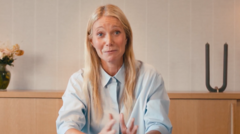Women with polycystic ovary syndrome (PCOS) are increasingly turning to social media influencers for treatment advice, often with detrimental results. These influencers, claiming to offer solutions like dietary supplements and lifestyle changes, have been found to market misleading and unverified health protocols.
Influencers Misleading Women with PCOS Cures

Influencers Misleading Women with PCOS Cures
Social media influencers are promoting unproven treatments for polycystic ovary syndrome, exploiting women’s health struggles for profit.
Sophie, diagnosed with PCOS, felt compelled to seek help online after struggling for years with symptoms including painful periods, weight gain, and fatigue. After finding Kourtney Simmang’s page on Instagram, she paid $3,600 for a dubious health program that promised to tackle the condition’s “root cause” — a promise that has no scientific backing. Following nearly a year under Kourtney’s guidance, Sophie reported no improvement, further complicating her relationship with food and her body.
Experts are raising alarms over such influencers, many of whom present themselves as medical authorities without proper credentials. As Dr. Jen Gunter, a recognized gynecologist, expressed, Kourtney lacked the qualifications necessary to deliver the tests and methods she advertised. This pattern is becoming rampant; the BBC found that half of the most popular videos related to PCOS on platforms like TikTok and Instagram disseminated false information.
PCOS affects about 10% of women globally, but up to 70% of sufferers remain undiagnosed. Misleading claims about dietary cures and the role of medications like birth control are prevalent, despite the absence of evidence supporting these assertions. Influencers advocate for extreme diets, like keto, wrongly suggesting that such lifestyle changes can cure the syndrome. However, experts warn that these approaches can exacerbate symptoms or lead to disordered eating.
The increase in influencers addressing PCOS reflects a gap in healthcare access, often leading women to seek advice from unauthorized sources. Real solutions typically involve a combination of medication and patient education, not unverified supplements or trendy diets. Women suffering from PCOS are encouraged to consult healthcare professionals and seek evidence-based treatments.
Mindful of the ongoing stigma and misunderstanding surrounding PCOS, advocates for women's health are stressing the importance of professional medical advice. They emphasize the need for comprehensive care rather than exploitation by social media influencers.
As Sophie continues to search for effective treatment options, the health community urges women to remain vigilant and critical of claims made by those without the credentials to offer legitimate medical guidance.
Experts are raising alarms over such influencers, many of whom present themselves as medical authorities without proper credentials. As Dr. Jen Gunter, a recognized gynecologist, expressed, Kourtney lacked the qualifications necessary to deliver the tests and methods she advertised. This pattern is becoming rampant; the BBC found that half of the most popular videos related to PCOS on platforms like TikTok and Instagram disseminated false information.
PCOS affects about 10% of women globally, but up to 70% of sufferers remain undiagnosed. Misleading claims about dietary cures and the role of medications like birth control are prevalent, despite the absence of evidence supporting these assertions. Influencers advocate for extreme diets, like keto, wrongly suggesting that such lifestyle changes can cure the syndrome. However, experts warn that these approaches can exacerbate symptoms or lead to disordered eating.
The increase in influencers addressing PCOS reflects a gap in healthcare access, often leading women to seek advice from unauthorized sources. Real solutions typically involve a combination of medication and patient education, not unverified supplements or trendy diets. Women suffering from PCOS are encouraged to consult healthcare professionals and seek evidence-based treatments.
Mindful of the ongoing stigma and misunderstanding surrounding PCOS, advocates for women's health are stressing the importance of professional medical advice. They emphasize the need for comprehensive care rather than exploitation by social media influencers.
As Sophie continues to search for effective treatment options, the health community urges women to remain vigilant and critical of claims made by those without the credentials to offer legitimate medical guidance.




















